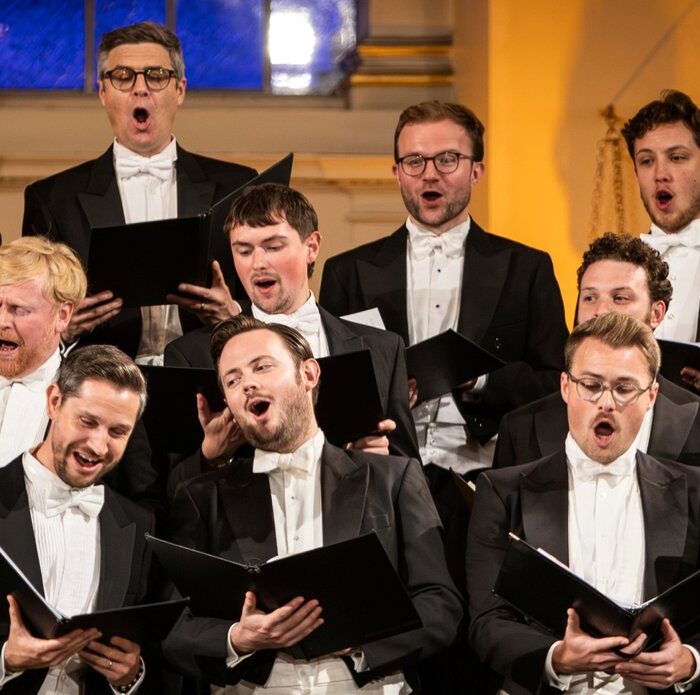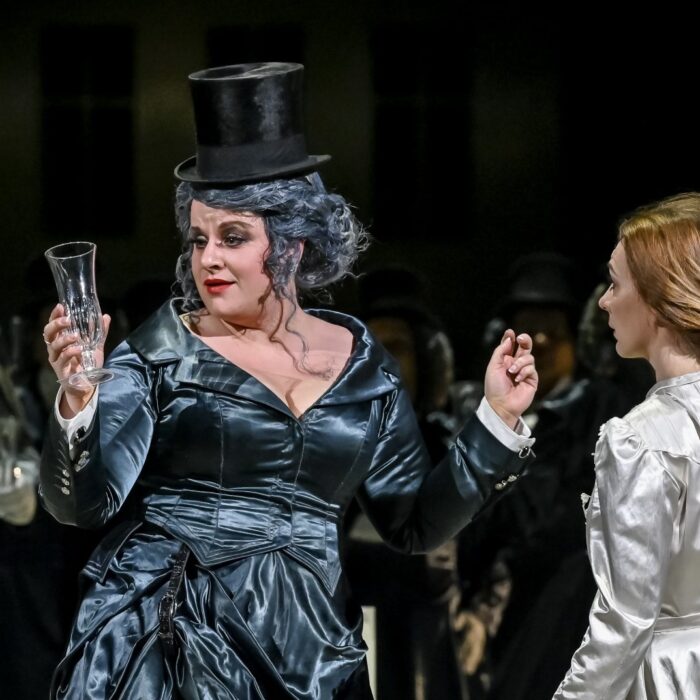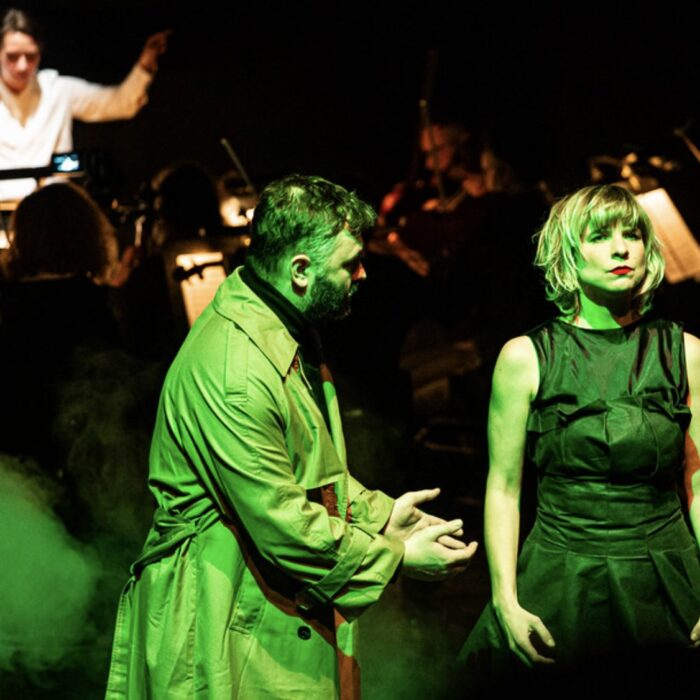
Wexford Festival Opera 2018 Review: Don Pasquale
A Fun Take On Donizetti’s Comic Masterpiece
By Alan NeilsonThe venue for Wexford Opera Festival “Opera Shorts” programme of piano accompanied, well-known operas in reduced form, is undoubtedly better suited to some works than others.
Donizetti’s “Don Pasquale” is probably a perfect fit for the small stage erected especially for the festival in White’s Hotel, in which the audience are all relatively close to the stage, and therefore able to see the facial expressions, subtle gestures and can fully engage with the quick-fire interactions of its small cast. With a simple plot and a cast of five, the entire opera can be reduced to fit comfortably into 90 minutes or so, without an interval.
The plot revolves around the story of a young couple in love, Norina and Ernesto, who have to devise a scheme to subvert the inappropriate plans of Don Pasquale, an old man, who wants to marry Norina himself. Don Pasquale is Ernesto’s uncle, and wants to disinherit him by fathering an heir to his estate, and cut Ernesto off without a penny. Dr. Malatesta agrees to find a wife for Pasquale, but in reality is intriguing to help the young couple. After the usual deceptions and misunderstandings, Ernesto and Norina are reunited and Pasquale is forced to recognize his own stupidity. It is the usual opera-buffa plot, but one which Ruffini’s libretto and Donizetti’s bubbly and effervescent score elevates to a higher level.
Simplicity Itself
The director, Kathleen Stakenas, aided by Angela Giulia Toso, scenography and costumes, and Johann Fitzpatrick, lighting, created a fast-moving, boldly-drawn presentation, which wonderfully captured the buffa spirit of the work, yet at the same time, managed to retain Donizetti and Ruffini’s carefully crafted, and very human characters.
The set was simplicity itself: a large Rubik’s cube, positioned centrally. It was, however, not just a symbolic reference to Malatesta’s complicated plot, which needed careful handling if a successful solution was to be found, for it opened up in a variety of ways to provide props for the performance, at one point even coming apart to become Norina’s wardrobe. It was visually easy on the eye and very effective. The only minor criticism is that it required too many pauses in the performance to make adjustments to the cube. The costumes were neutral and unobtrusive, with the exception of Malatesta’s, who was dressed as a mad scientist, with crazy hair, a false mustache, glasses, and a lab coat.
The Standout
The undoubted standout performance was that of the young Polish baritone, Simon Mechlinski, who played the part of Dr. Malatesta. Aged only 23, Mechlinski sang and acted out the part with considerable skill and displayed an awareness of the stage that many singers with far greater experience fail to achieve. He showed a natural affinity with his character, slipping easily into Dr. Malatesta’s shoes, enthusiastically hamming it up for all it was worth, and drew out the full comedic potential of the role.
It was his singing, however, that really captured the attention, for Mechlinski has an outstanding voice, and knows how to use it. He has a warm, dark-hued baritone. The voice is powerful, secure and flexible. His phrasing displays considerable intelligence, with an intuitive understanding of how to characterize the role; his use of subtle dynamic variations, colorful nuances, and well-placed accents was impressive. It was a prodigious performance and suggests that there is a very successful career looming on the horizon.
Unique Touches
The Croatian bass, Toni Nezic, who is young, tall and thin, played the role of the old and fat, Don Pasquale, without any attempt at altering his appearance, which was amusing and worked well, especially when he was directly referred to as old and fat. He sang the part well, effectively capturing Pasquale’s character. He showed particular skill in the quick-fire exchanges with Mechlinski in the duet “Aspetta, aspetta cara sposina.”
The Canadian light lyric soprano, Barbara Cole-Walton, playing the role of Norina, also made a strong impression. In her attempt to confuse and outmaneuver Pasquale she displayed real acting skill in shifting between a hard-nosed gold digger and a naïve gentle home-loving girl.
She possesses an agile, attractive singing voice, with a bright timbre, and had ample opportunities to show off her sparkling coloratura, which she did with confidence and precision, knocking out the top notes with ease.
The role of Ernesto was undertaken by Antonio Mandrillo. He possesses a pleasing tenor with much to admire but did not really shine in the role. His voice occasionally sounded forced in the upper register, although vocally, he did manage to bring a degree of depth to his character, and his acting was convincing.
Henry Grant Kerswell played the small part of the notary. Daniela Pellegrino drove the comedy along with a scintillating piano accompaniment, alive at all times to the onstage drama.
All in all, the cast and production team produced an entertaining afternoon piece of theatre, which successfully brought Donizetti’s comedy masterpiece to life.


